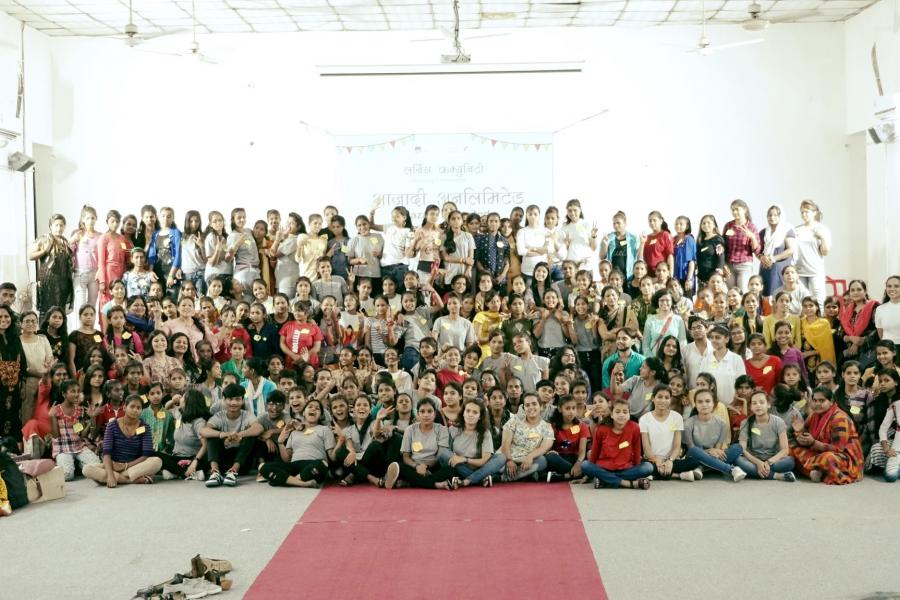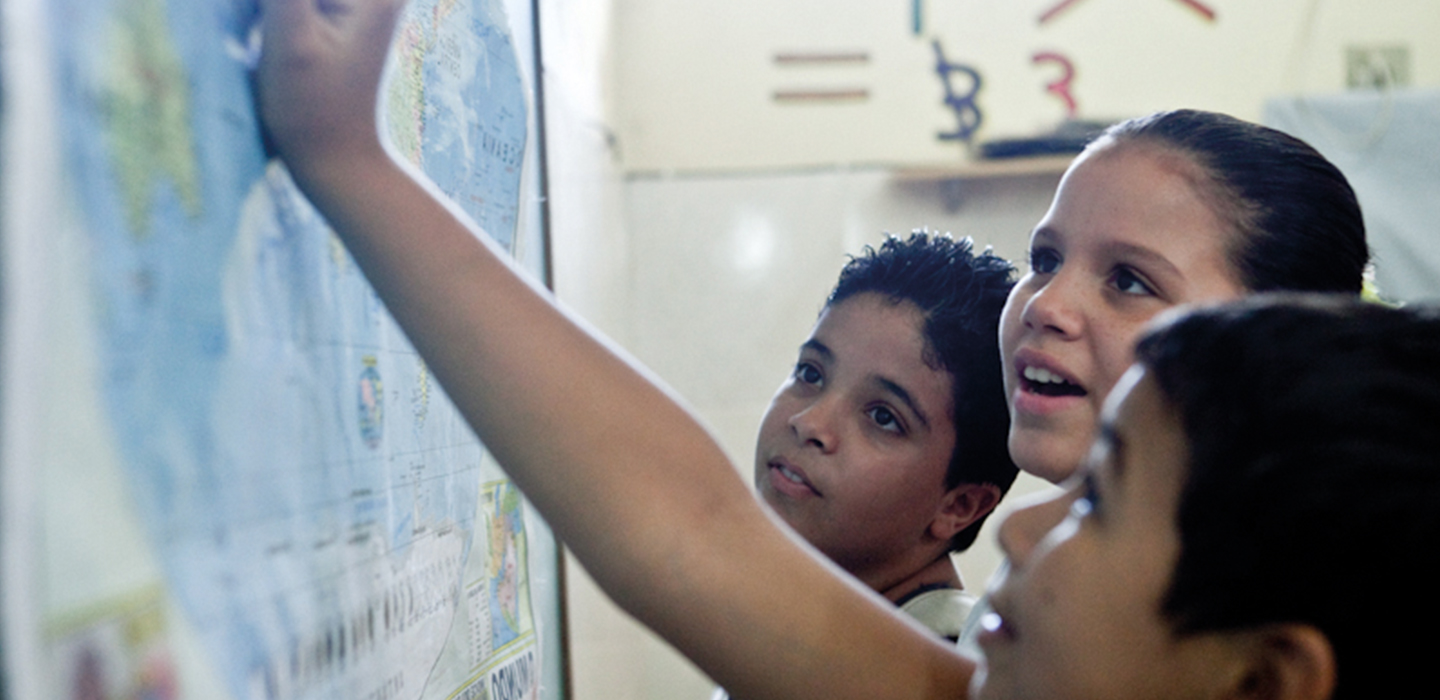Latest News
EMpower’s Adolescent Girls Learning Community in Delhi comes together for annual event, Aazadi (Freedom) Unlimited!
Posted 07 August 2019 in EMpower News, Grantee Partner News | Share

On July 30, Adolescent Girls Learning Community in the Delhi Learning Community came together for its joint event, Aazadi Unlimited. #AbNaaRokoMujhe which means ‘Don’t Stop Me Now’ was the slogan for this year’s event.
At the event, girl leaders from Chintan, Swechha, The YP Foundation (TYPF), Feminist Approach to Technology (FAT) and Joint Operation for Social Help (JOSH) used theatre, dance, art and games to talk about the societal pressures and restrictions that limit their mobility and negatively impact their aspirations.
What is an Adolescent Girls Learning Community?
The Learning Community is a space created by EMpower that nurtures and empowers girl leadership. Conceptualized first in Mumbai in 2012, the Learning Communities position and support adolescent girls as change-makers.
Girls are the decision-makers on all levels: they decide which issues to target, they are the idea generators, the planners and the public face of the community. The girls themselves LEAD in actively pursuing solutions to break the barriers that hold them back.
Learning Communities aim to empower girls to become advocates on issues that are critical to their lives, including speaking out against restrictions on their rights, confronting gender-based violence and improving their mobility and public safety in their communities.
EMpower supports the communities through funding, thought partnership and capacity-building.
Aazadi Unlimited
In the weeks preceding the event, girl leaders and mentors from member organizations organized various activities in their own communities to bring visibility and create awareness about the issues that they face – restrictions on mobility and safety concerns. They also conducted a survey, the results of which are currently being analyzed. In the process, certain themes emerged such as the role society and family plays in limiting the freedom of girls, how the onus of gender-based violence is often placed with the girl, how concepts of family honor and pride can take priority over the girl’s own wishes, and the challenges that girls need to overcome in order to realize their dreams and true potential. Through Aazadi Unlimited, girl leaders and mentors from all five participating organizations came together to collectively highlight these issues, and to have a dedicated space for an entire day where they could express themselves freely.
Making a point through theatre, dance and art
TYPF organized a Q&A activity, inviting participants to weigh in on important questions about restrictions that society places on girls. They asked questions like: “How come we have faith in society, but not in our own daughters?” “Are elders always right?” Later in the day, girl leaders from TYPF spread out in the room as ‘human libraries’. They narrated their own stories of pursuing dreams while recounting the challenges each one had to face – and once again, they asked the audience – “Why are there so many restrictions on girls?”
JOSH’s simple but effective painting activity on the theme ‘Girl Power’ had many takers. Girls painted vivid portraits of what empowerment means to them – they worked alone, in pairs and in groups to bring their ideas to fruition. Girl leaders from JOSH danced to the tune of a popular number from a Hindi movie about female wrestling; “Kaisi dhaakad hai!” which means “This girl is a powerhouse!” received rapturous applause as the idea of being strong in the face of difficulty resonated with so many girls.
A game of musical chairs facilitated by FAT kept the spirits high. The Learning Community’s girl leaders from FAT also performed a conventional ‘nukkad naatak’ (street play) highlighting how gender-based violence is commonplace in our society and the ways in which it threatens the freedom of girls and women.
Chintan invited girls to write and pin up the most commonly heard taunts that girls have to suffer – insults that belittle them and can be damaging to their self-esteem. Right next to the Chintan activity area was a photo booth where girls could choose from a variety of frame designs carrying empowering messages and pose with them.
Swechha’s activity, ‘Web of Restrictions’ encouraged girls to highlight the simple freedoms for which they are fighting. “Please let me eat food with my friends.” “Dad, don’t stop me from going out at night.”– The web represented these among a host of restrictive messages that girls receive from people around them. Swechha’s girl leaders occupied the stage with their play. They presented scenes from ‘aaj kee duniya’ (the world as we know it) versus ‘hum jo duniya chahte hain’ (the world we desire) in the context of gender-based discrimination. The play touched upon the themes of division of domestic chores, and autonomy for girls when it comes to making choices related to education, career and relationships.
Time to celebrate
Girl leaders and mentors from each member organization of the Learning Community invested a considerable amount of time and efforts to plan and execute this event. Kudos to the Learning Community in Delhi and everyone associated with it! A special thanks to Swechha for coordinating the event and ensuring everything ran like clockwork. And a huge shout-out to the girls for their unwavering belief in working collectively towards positive change!
View All NewsMore Latest News
- A Word with Prarthana Kumar
- Posted 16 April 2024
- Finding the Power
- Posted 16 April 2024
- A Word with Rachel Andrews
- Posted 20 March 2024
Upcoming Events
Connect with EMpower
Stay up-to-date on the latest EMpower news, highlights from our grantee partners, upcoming events, and more.
Make a Difference with EMpower
Our Board Directors and the Leadership Council underwrite all of our Management, General and Fundraising expenses, so 100% of your donation goes directly to empowering marginalised young people.

